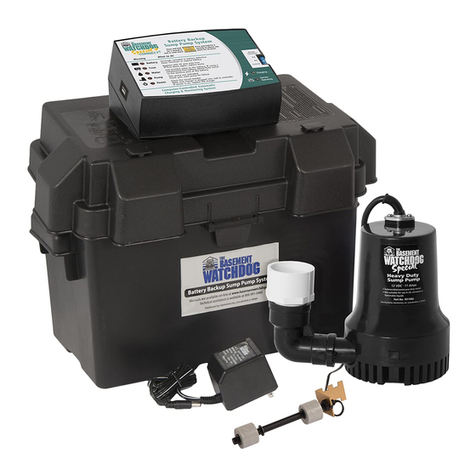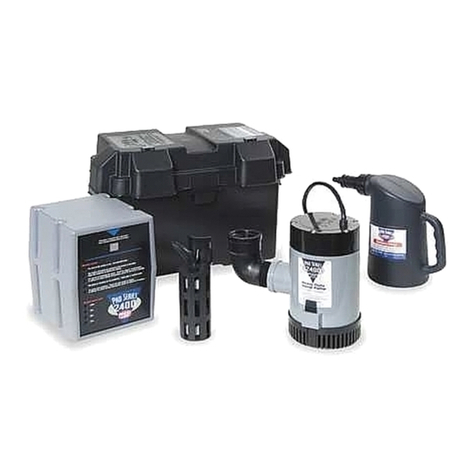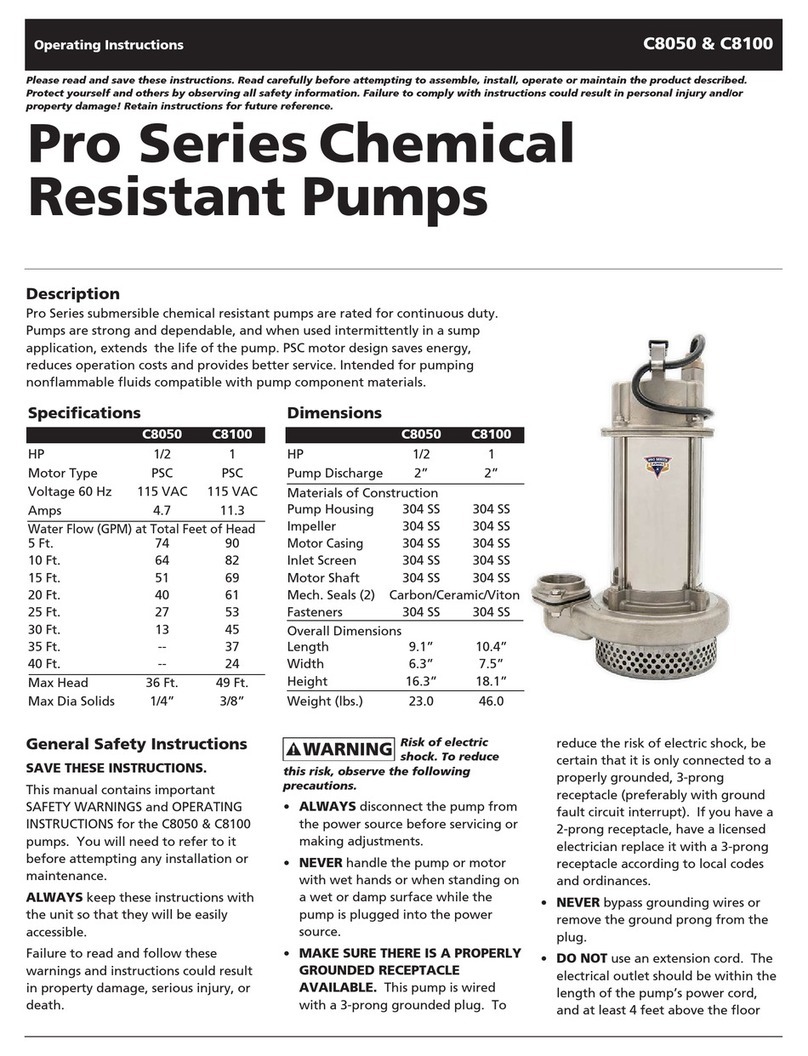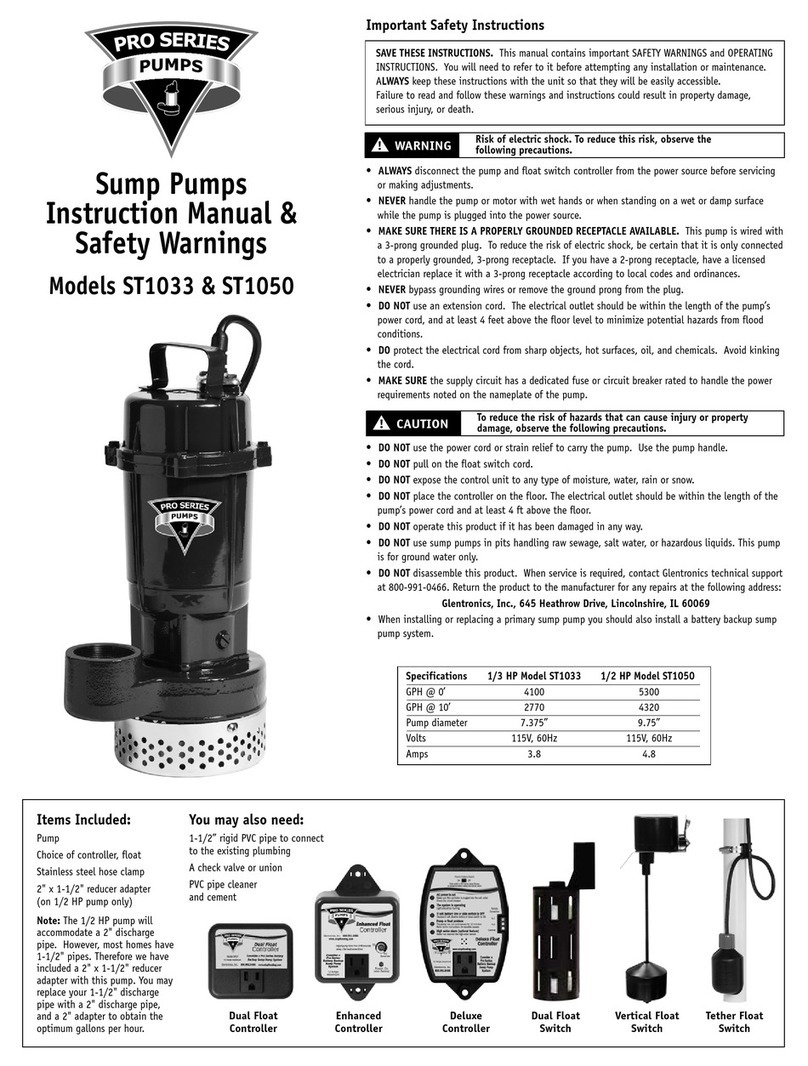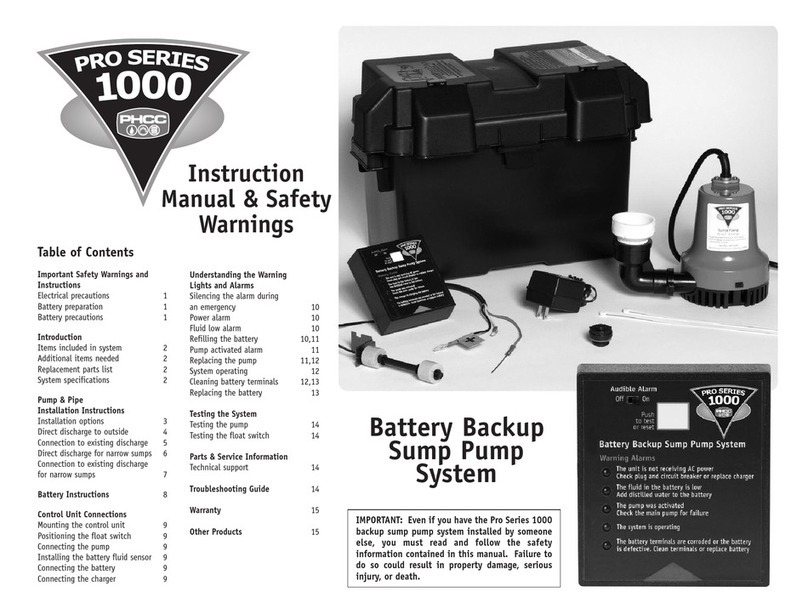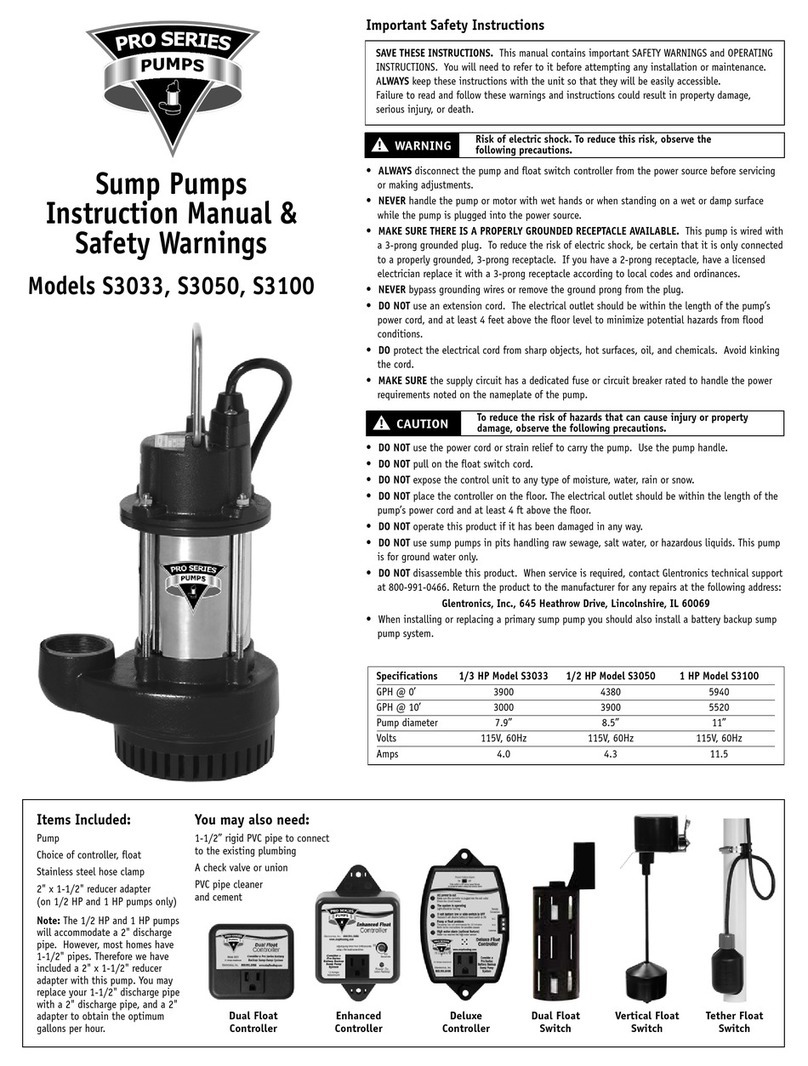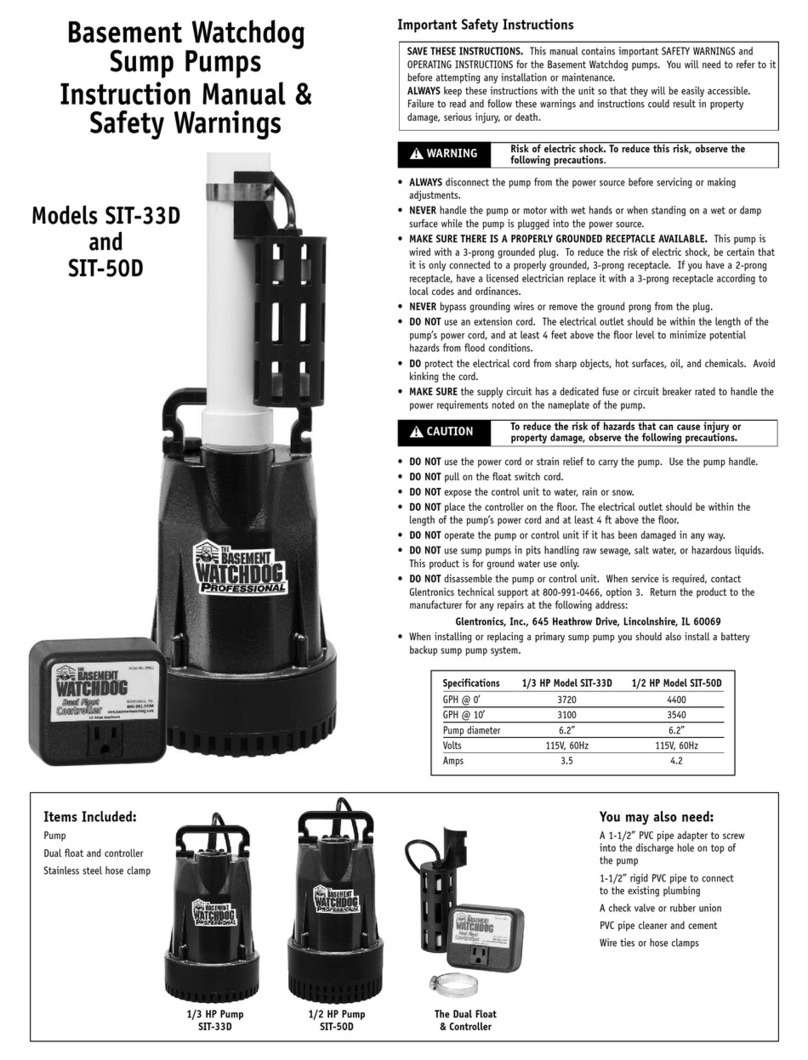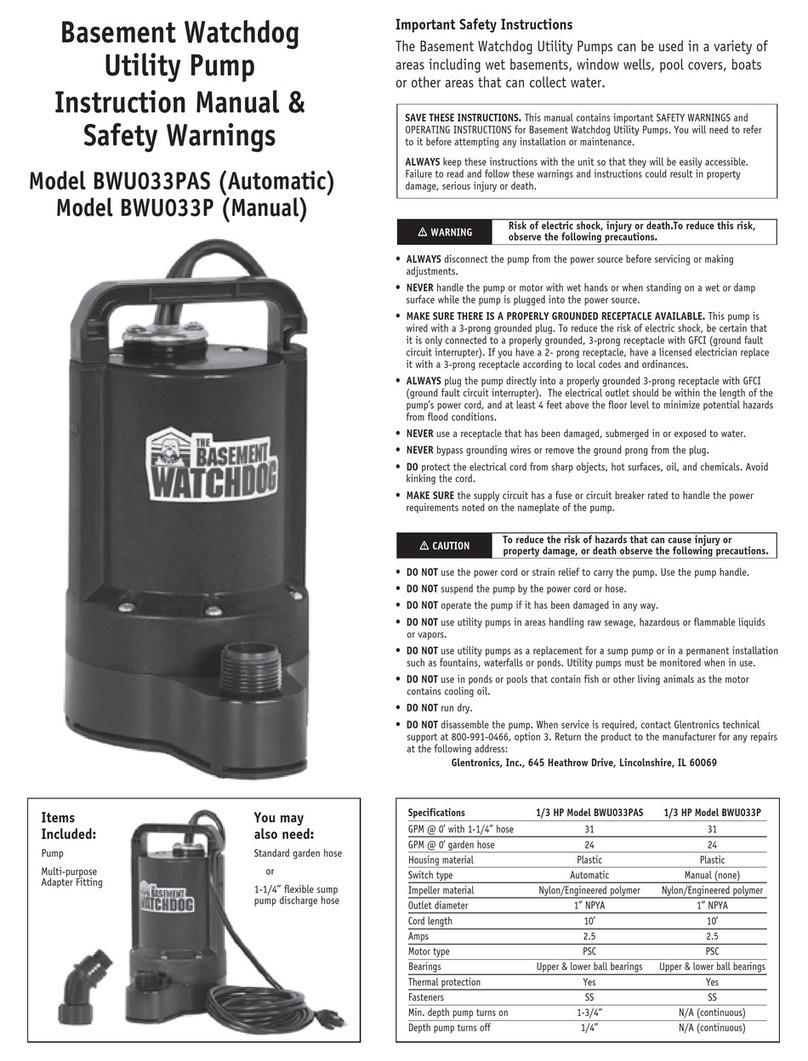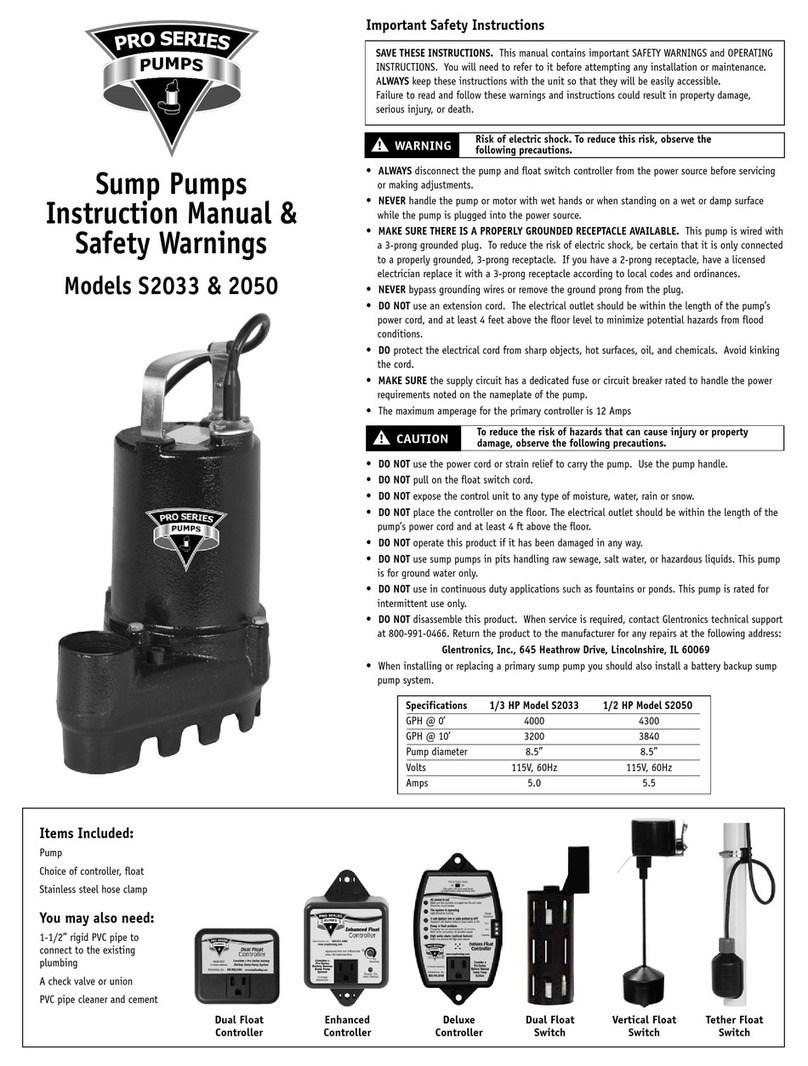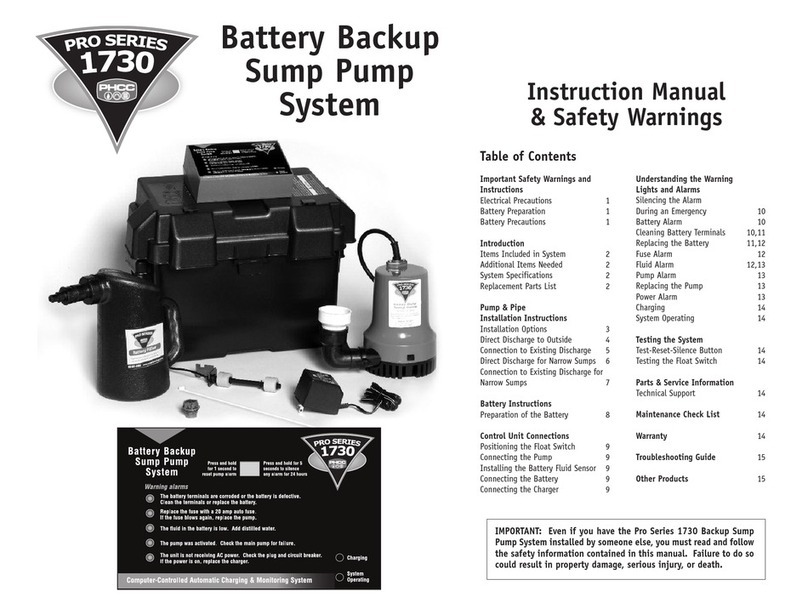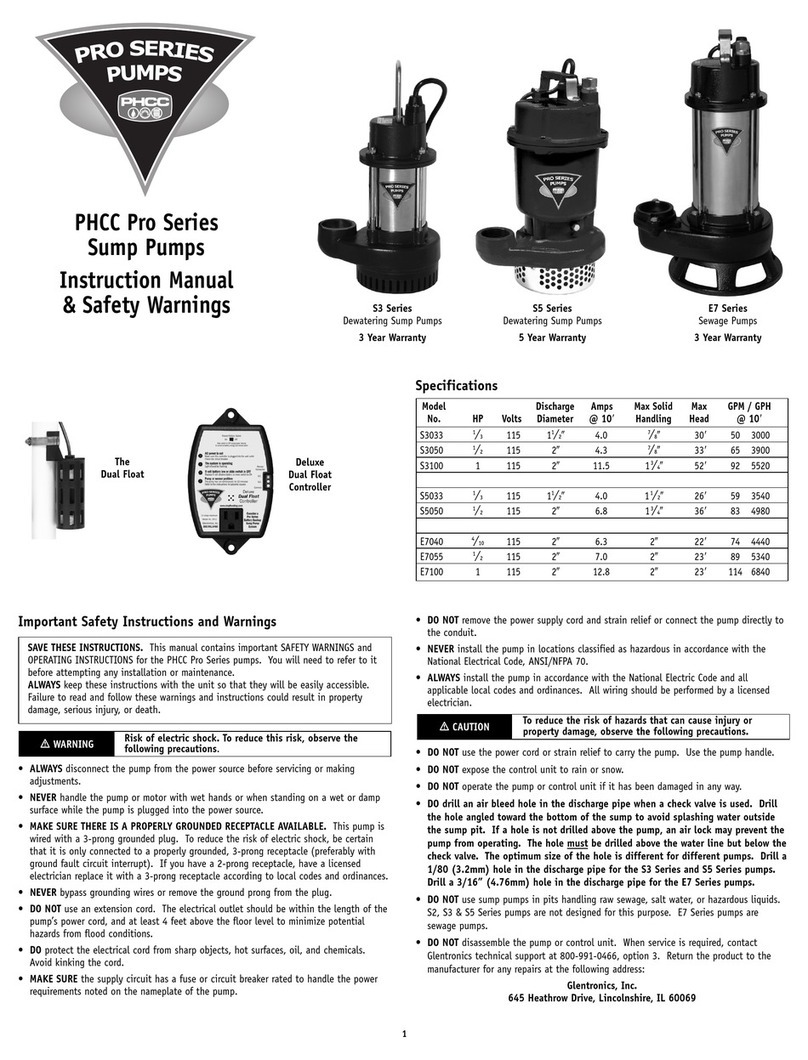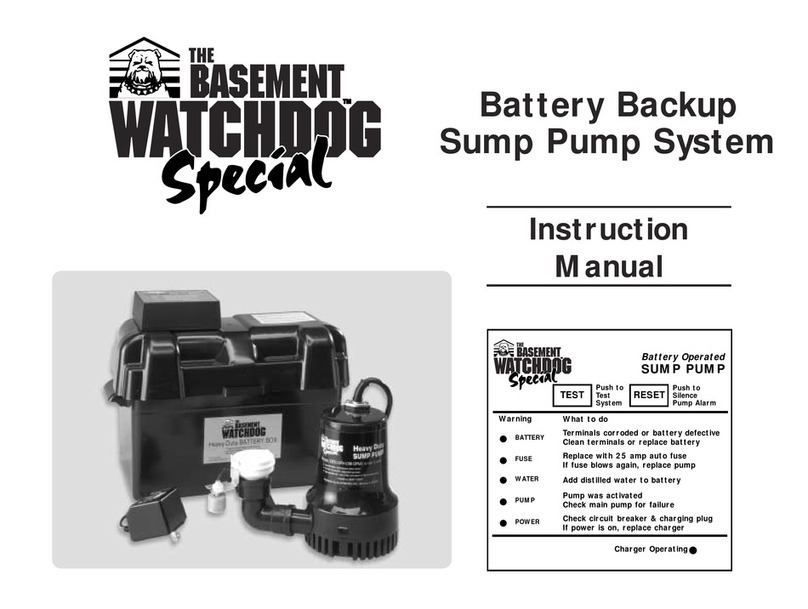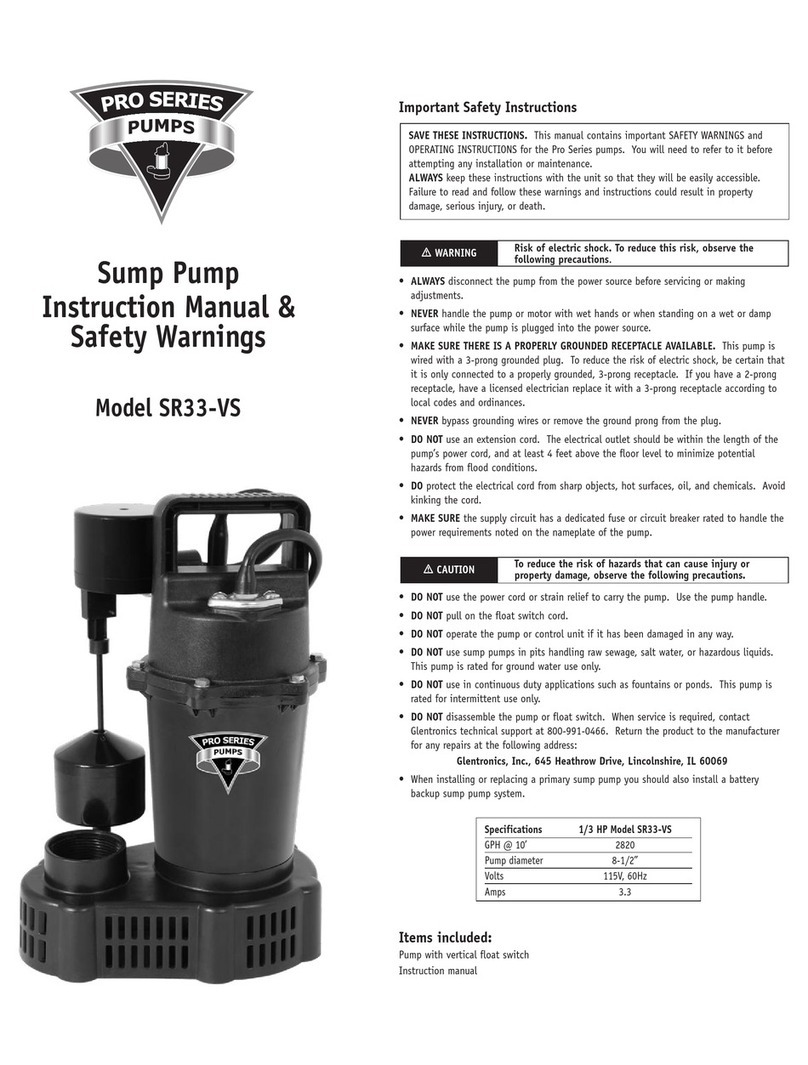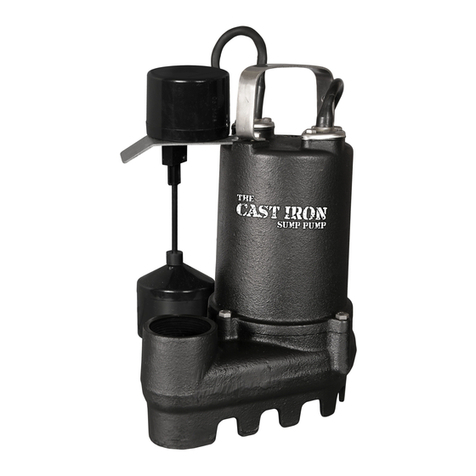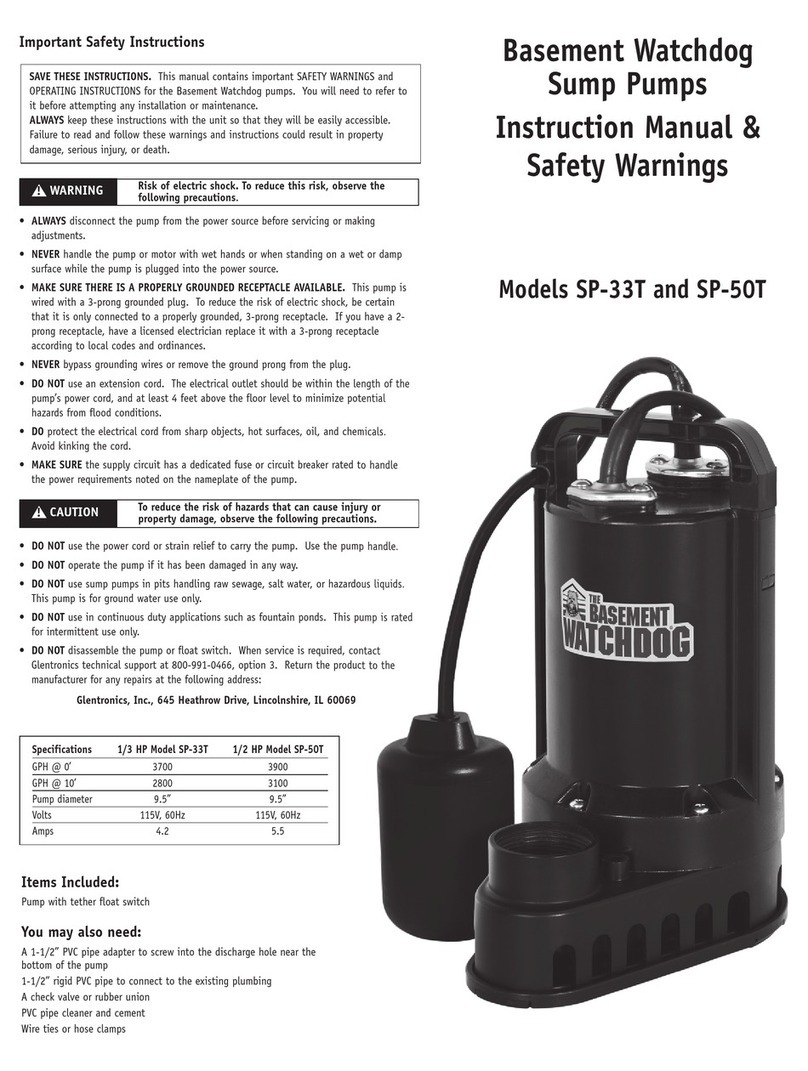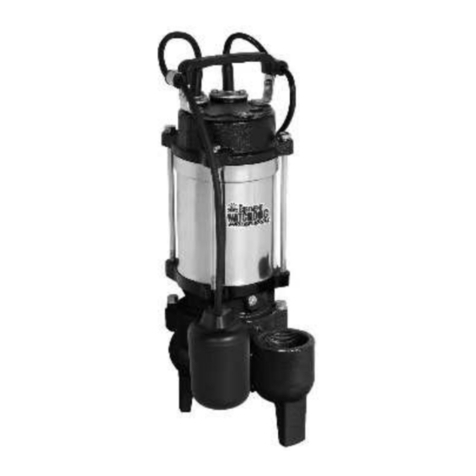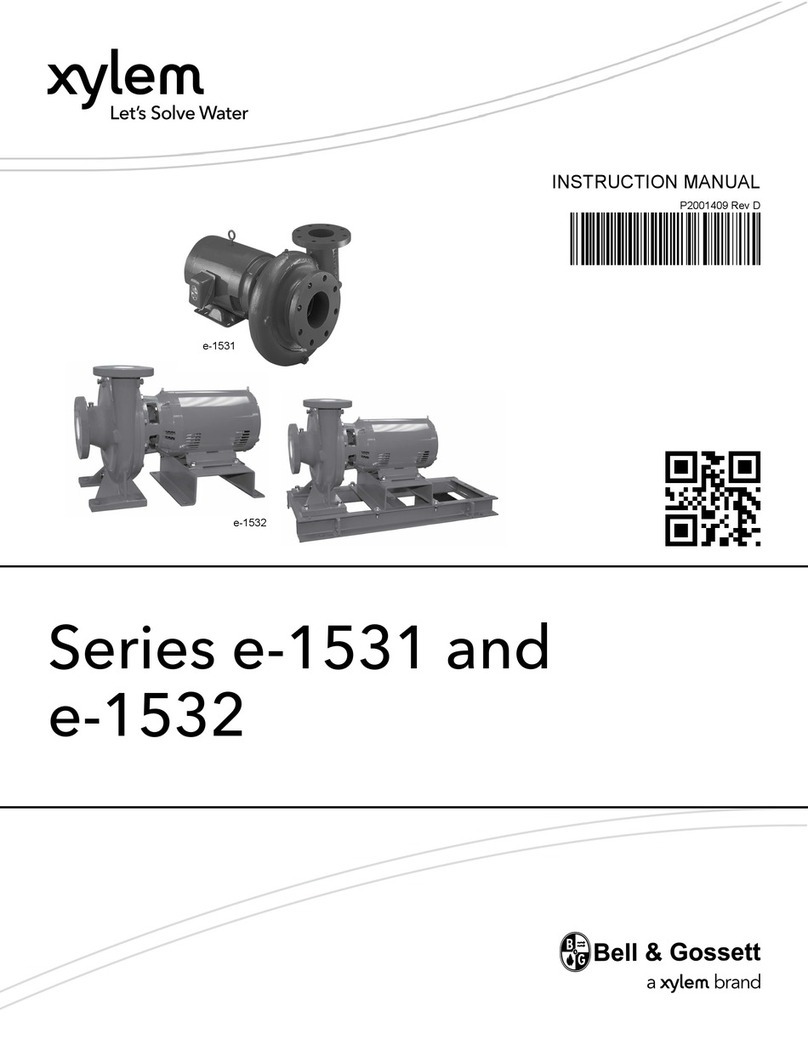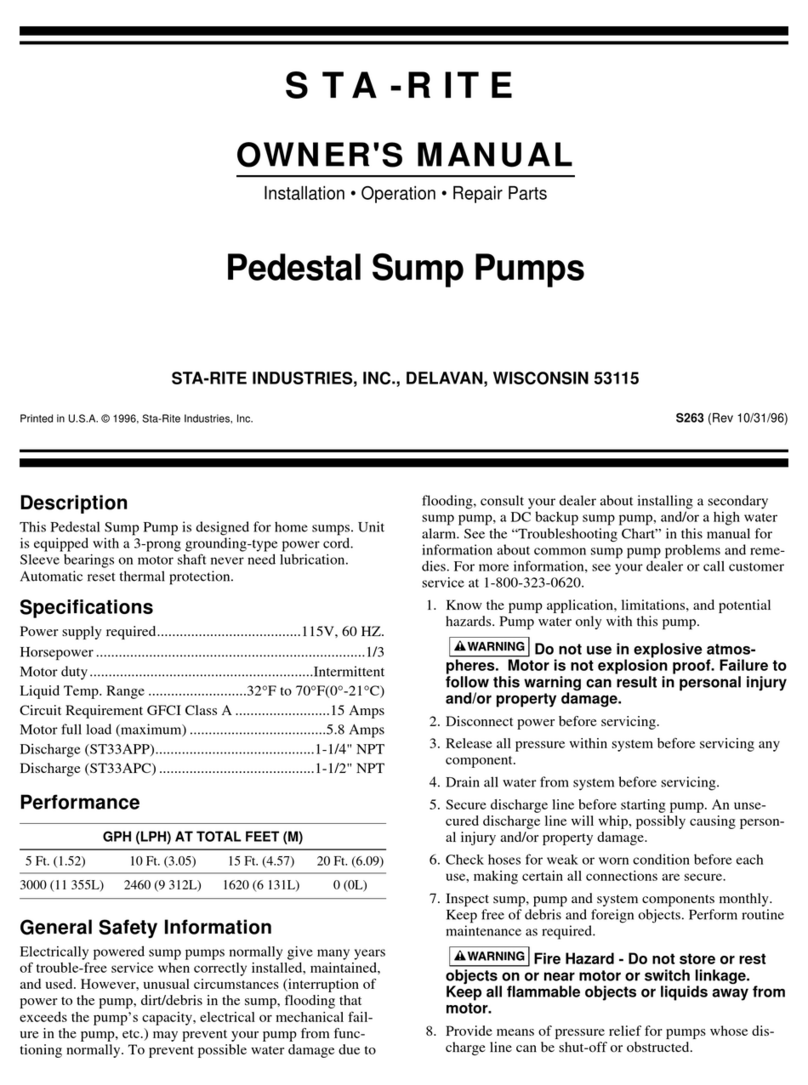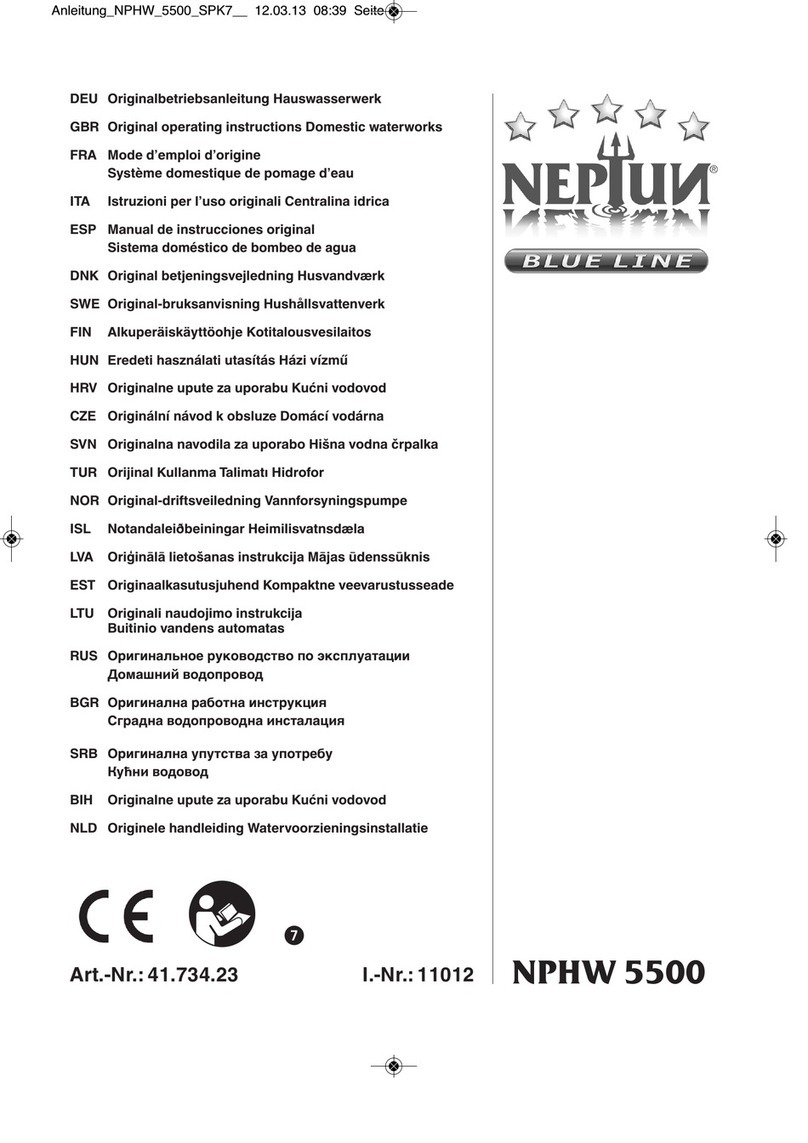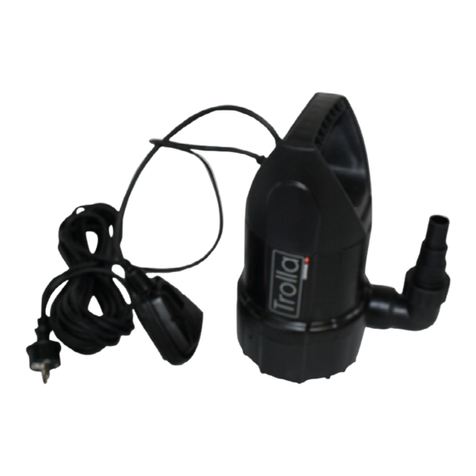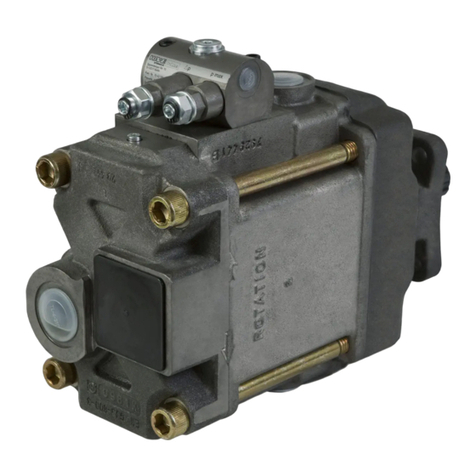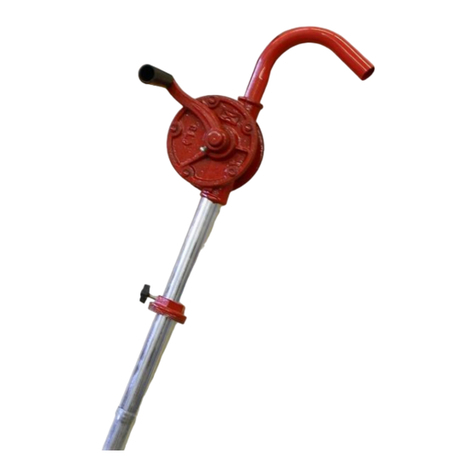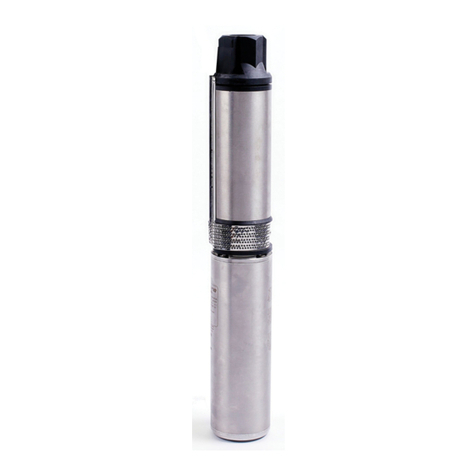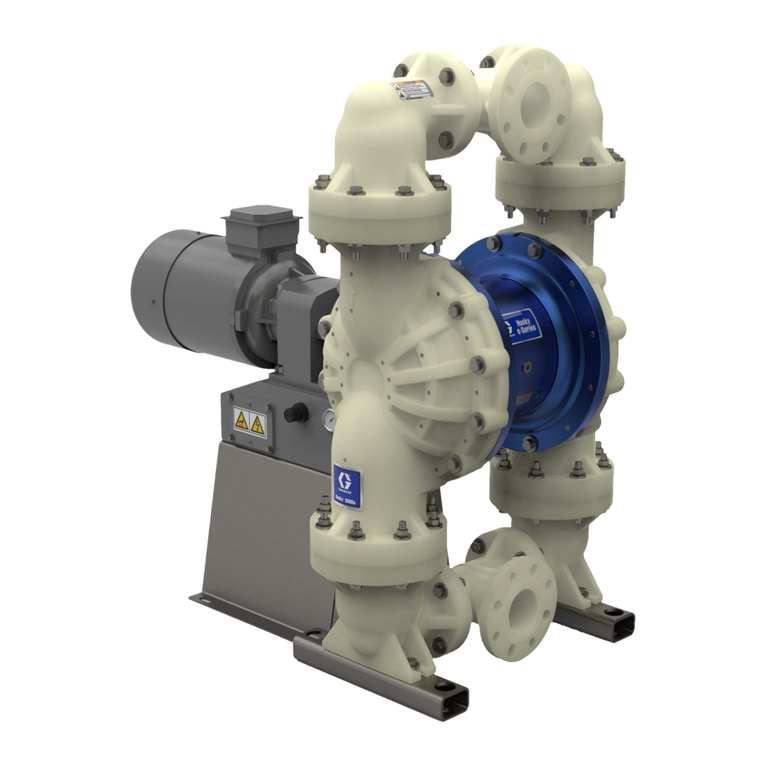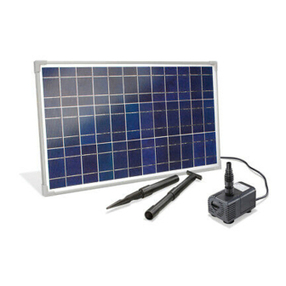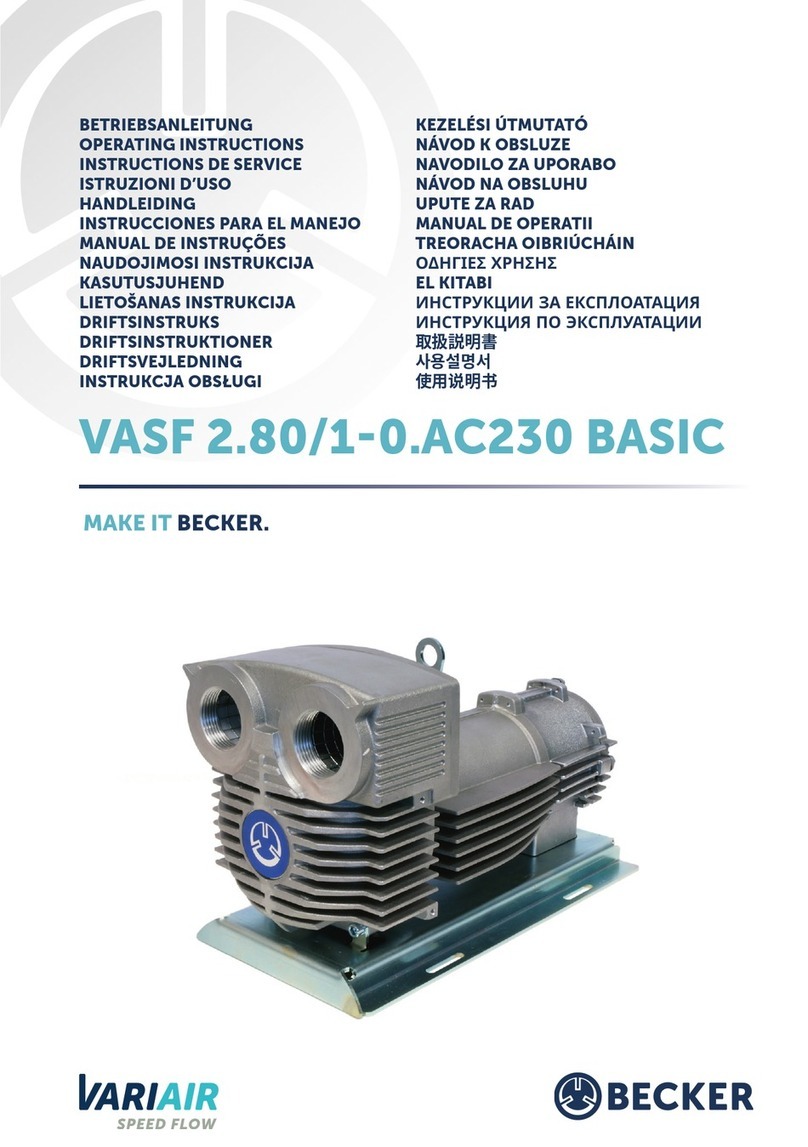
•When a check valve is used, a 1/8 in. (3.2mm) air bleed hole must be drilled
in the PVC pipe above the pump. Drill the hole at a 45° angle toward the
bottom of the sump to avoid splashing water outside the sump pit. Make sure
the hole is above the water line, and below the check valve. If a hole is not
drilled above the pump, an air lock may prevent the pump from operating.
• The control unit must receive 115V AC +/- 5% and 60 z from the AC outlet.
• These primary pumps will not provide protection during a power outage. With the
risk of property damage from high water levels, the addition of a Basement
Watchdog battery backup sump pump system is highly recommended.
• After the initial installation, be sure to check the operation by filling the sump
with water and observing the pump operation through one full cycle.
• For continuous duty operation, the pump must be submerged at least 3/4 of the
depth of the pump at all times.
• In instances where the discharge line is exposed to freezing temperatures, the pipe
must be sloped downward so any remaining water will drain out. Failure to do so
will prevent water from exiting the sump and damage the pump if the line freezes.
Installation Instructions
Prior to Installation
1. Visually inspect your pump. Products may be damaged during shipping. If the
product has been damaged, contact your place of purchase or Glentronics, Inc.
before installation.
2. Thoroughly read the instructions provided to learn specific details regarding
installation and use. This manual should be retained for future reference.
1. Use a pit that conforms to all local
codes and is large enough to
accommodate the pump and float
switch. The minimum requirements for
the 1/2 P pump with the double float
assembly are 8⬙in diameter and 14⬙
deep, for the 3/4 P pump they are 10"
in diameter and 16" deep. However,
larger sump pits are preferred, since
they will extend the discharge cycle
and reduce the number of times the
pump turns on.
2. Clean the pit of all debris. The pump’s
strainer must be kept clear.
3. The pump should not be set directly
onto a clay, earthen, or sand base. You
may install bricks or blocks under the
pump to provide a solid base.
4. The pump should be level.
5. Install discharge plumbing according to
local, regional and state codes. Rigid
PVC pipe is recommended.
6. An in-line check valve is recommended to prevent back-flow. This check valve is
mandatory when sharing a discharge line with another pump (i.e. a back-up pump
or a second primary pump).
(a) When a check valve is used, a 1/8 in. (3.2mm) air bleed hole must be
drilled in the PVC pipe above the pump. Drill the hole at a 45° angle
toward the bottom of the sump to avoid splashing water outside the sump
pit. Make sure the hole is above the water line, and below the check valve.
If a hole is not drilled above the pump, an air lock may prevent the pump
from operating.
7. Install a gate valve or ball valve if required by any codes.
8. The pipe must be positioned in a downward slope so any remaining water will drain
away. Failure to do this will prevent water from exiting the pit and damage the
pump if the line freezes.
9. If you are replacing an old sump pump:
(a) Unplug the pump from the outlet.
(b) Loosen the check valve or rubber union by
unscrewing the bottom hose clamp. (If the
existing system is installed without a check
valve or rubber union, saw the pipe apart
above the sump pit.)
(c) Remove the old pump and unscrew the pipe
and adapter.
(d) If the adapter fits into the new pump, screw the pipe into the pump. If not,
cut a piece of rigid PVC pipe and connect it to the new adapter by cleaning and
cementing the two pieces together. (Follow the instructions on the PVC cleaner
and cement.)
(e) Loosen the enclosed stainless steel hose clamp by turning the screw
counterclockwise and slip it over the pipe on top of the pump.
(f) old the float switch against the discharge pipe so the cage is below the
bracket.
(g) Position the bottom of the float at the height you want the pump to activate
and turn the screw clockwise to tighten the hose clamp, but do not tighten it
completely at this time.
(h) Lower the pump into the sump by the handle.
(i) To avoid debris pouring into the float, it should be positioned on the side of the
discharge pipe opposite the drain tile. Note: It is desirable to mount the float
below the drain tile that empties into the pit. Mounting it above the drain tile
would allow water to fill the drain tile before the pump is activated. (See diagram).
(j) Once the switch is in the desired position, tighten the hose clamp.
(k) Connect the pipe on the pump to the existing discharge pipe with a rubber
union or check valve and tighten the hose clamps securely.
Connecting the Pump and Controller
Dual Float Controller
Plug the control box into a properly
grounded, 3-prong receptacle (preferably
with ground fault circuit interrupt), then
insert the pump plug into the receptacle
on the control box. You should provide
additional protection for the control unit
by using a surge protector.
For a neater installation, secure the power
cord and the float switch cord to the
discharge pipe with wire ties or hose
clamps. Keep the cords separated from
each other on opposite sides of the pipe.
Completing the Installation
1. After the initial installation, be sure to check the pump operation by filling the sump
with water and observing the pump through one full cycle. The pump should run for
10 seconds after the lower float drops. Note: When the p mp activates, it sho ld have
a “normal p mping” so nd. Any abnormal so nd, vibration, or lack of o tp t is the
signal of a problem. Stop the p mp and refer to the tro bleshooting g ide.
WAR I G
WAR I G
OTICES
PUMP
WIRE
AIR BLEED
HOLE
FLOOR
JOIST SLOPE
PIPE
DOWN
SURGE
PROTECTOR
DISCHARGE
PIPE
GATE
VALVE
UNION/CHECK
VALVE
BASEMENT
WATCHDOG
PUMP
DOUBLE
FLOAT
BRICKS
DRAIN TILE
FLOAT WIRE
DUAL FLOATCONTROLLER
PLUGGED INTO
AC OUTLET
PIT COVER
This installation must be in accordance with the ational
Electric Code and all applicable local codes and ordinances.
Make sure the outlet is single phase, 115V and 60HZ
for all the pump installations.
2
9C 9D 9F
SURGE
PROTECTOR DISCHARGE
PIPE
GATE
VALVE
UNION/CHECK
VALVE
DUAL FLOATCONTROLLER
PLUGGED INTO
AC OUTLET
P
PUMP
WIRE
FLOAT
WIRE
9B

